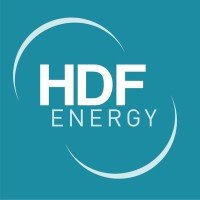Rosatom increases hydrogen cooperation
Atomenergomash plans to build Russia’s first hydrogen power plant by 2033

Rusatom Overseas JSC (part of Rosatom State Corporation) today (27th December) announced to have signed an agreement with NLMK Group (an international metallurgical company) on cooperation in hydrogen production and the development of technologies for capturing and using CO2.
The agreement provides for joint R&D in hydrogen production technologies, such as water electrolysis, steam reforming of methane with carbon dioxide capture and methane pyrolysis, and the implementation of pilot projects for the production of hydrogen. As part of the joint work, the parties plan, among other things, to evaluate the technical and commercial aspects of the production of climate-neutral hydrogen.
Evgeny Pakermanov, President of Rusatom Overseas JSC, said, “We are convinced that in the near future hydrogen technologies will occupy a solid niche in the market of countries and regions that set ambitious targets for reducing carbon dioxide emissions, and we are developing our own know-how along the entire hydrogen life cycle, including promising production technologies low-carbon hydrogen.”
Sergey Chebotarev, VP of NLMK Group for Energy and Environment, added, “One of the promising directions for the development of the metallurgical industry is the use of low-carbon hydrogen, which makes it possible to reduce the use of carbon-containing resources.”
Meanwhile, Atomenergomash (the nuclear power division of Rosatom) plans to build Russia’s first hydrogen power plant by 2033, which would be commercially operational by 2036. According to the roadmap, in 2023, the technical design of the nuclear power plant reactor is supposed to be completed, and the beginning of 2025 will be licensed.
Last week, Rusatom Overseas and PJSC Lukoil signed a memorandum of intent on developing cooperation regarding the production and supply of green hydrogen for the Petrotel-Lukoil S.A. refinery located in the city of Ploesti, Romania. The parties will study the possibilities of producing hydrogen at the Romanian refinery by employing electrolysers with a 10k cubic metres/hour production capacity. The project will also look into obtaining government support for the project at both national and European levels.
